Age-Friendly Health Systems Recognition
Age-Friendly Health Systems Recognition
IHI recognizes clinical care settings that are working toward reliable practice of evidence-based interventions for all older adults in their care known as the 4Ms (4Ms: What Matters, Medications, Mentation, Mobility). As of July 2025, over 5,300 health care organizations have earned either level 1 (Participant) or level 2 (Committed to Care Excellence) recognition in the Age-Friendly Health Systems movement.
- Level 1 (Participant) teams have successfully developed plans to implement the 4Ms.
- Level 2 (Committed to Care Excellence) teams have three months of data of older adults who received 4Ms care.
For more information on who is eligible for recognition, timelines for submission to notification, and more, visit the Frequently Asked Questions section below or sign up for Office Hours to meet with our team.
Submit Your 4Ms Care Description
Step 1. Select the 4Ms Care Description worksheet that best corresponds to your site of care
Understand which 4Ms care description to select for your facility, with the guidance from this one pager.
- Hospital
- Nursing Home
- Ambulatory Care
- Convenient Care Clinic
- NEW: Home Health
- Hospitals That Have Achieved Geriatric Surgery Verification
- Sites That Have Achieved Geriatric Emergency Department Accreditation
- Committed to Care Excellence Counts (multiple sites)*
*If your health care system has multiple sites of care, please use the Committed to Care Excellence Counts (multiple sites) spreadsheet. If not, please look on the last page of your Care Description PDF Form.
Step 2. Email your completed 4Ms Care Description worksheet to AFHS@ihi.org
You should receive an email with information about your recognition status within three weeks.
Please email AFHS@ihi.org for questions or additional information on becoming recognized as an Age-Friendly Health System.
Resources for Recognition
- Learn about the recognition process. This video will walk through the steps of submission and achieving recognition.
- Download the Guide to Using the 4Ms in the Care of Older Adults for your care setting to learn about the 4Ms Framework and how to become an Age-Friendly Health System.
- Download the Guide for Hospital/Ambulatory Practice
- Download the Guide for Nursing Homes
- Download the Guide for Convenient Care Clinics
- NEW: Download the Guide for Home Health
- Download the Guide to Recognition for Geriatric Surgery Verification Hospitals
- Download the Guide to Recognition for Geriatric Emergency Department Accredited Sites
- Download the What Matters to Older Adults? Toolkit to design better care with older adults but understanding "what matters" most to each adult
- Download the Age-Friendly Health Systems Workbook for Nursing Home Teams designed by and for point-of-care teams that interact with individual residents each day.
- Download the Age-Friendly Health Systems Mobility Assessment Tools Guide to identify accepted mobility tools for use within your facility.
Recognition Frequently Asked Questions
Age-Friendly Health Systems Recognized Sites
Please visit the Recognized Sites page to view a list of hospitals and health care practices that have achieved Age-Friendly Health Systems Recognition.
Join Friends of Age-Friendly Health Systems
Receive updates on the Age-Friendly Health Systems movement, invites to quarterly webinars, access to experts, support on the 4Ms Framework, and more.
Join the Community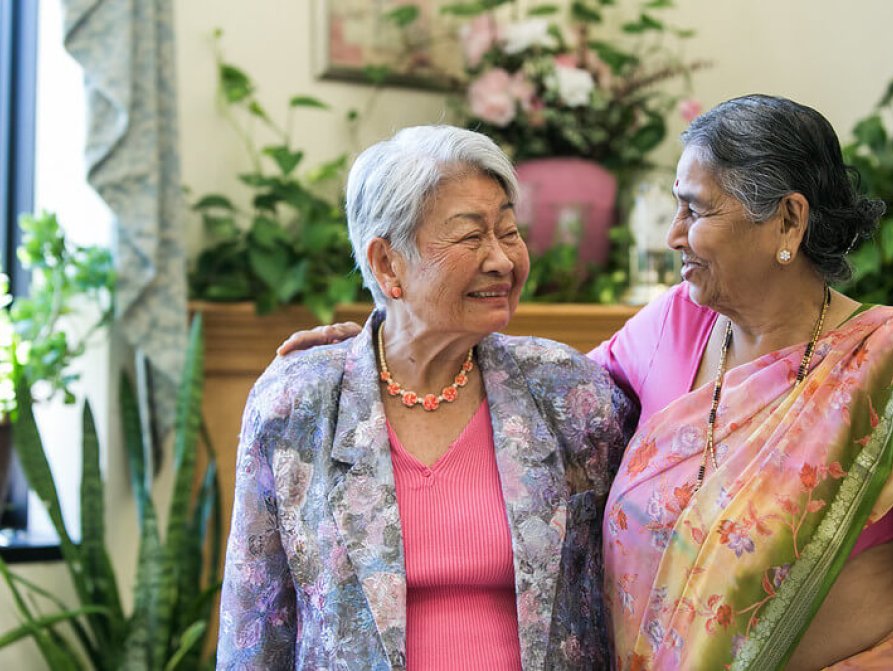
National Steering Committee for Patient Safety
National Steering Committee for Patient Safety
The Institute for Healthcare Improvement (IHI) convened the National Steering Committee for Patient Safety (NSC) as a collaboration among 27 national organizations in the US committed to advancing patient safety. IHI charged the NSC with the creation of the first US national action plan for patient safety.
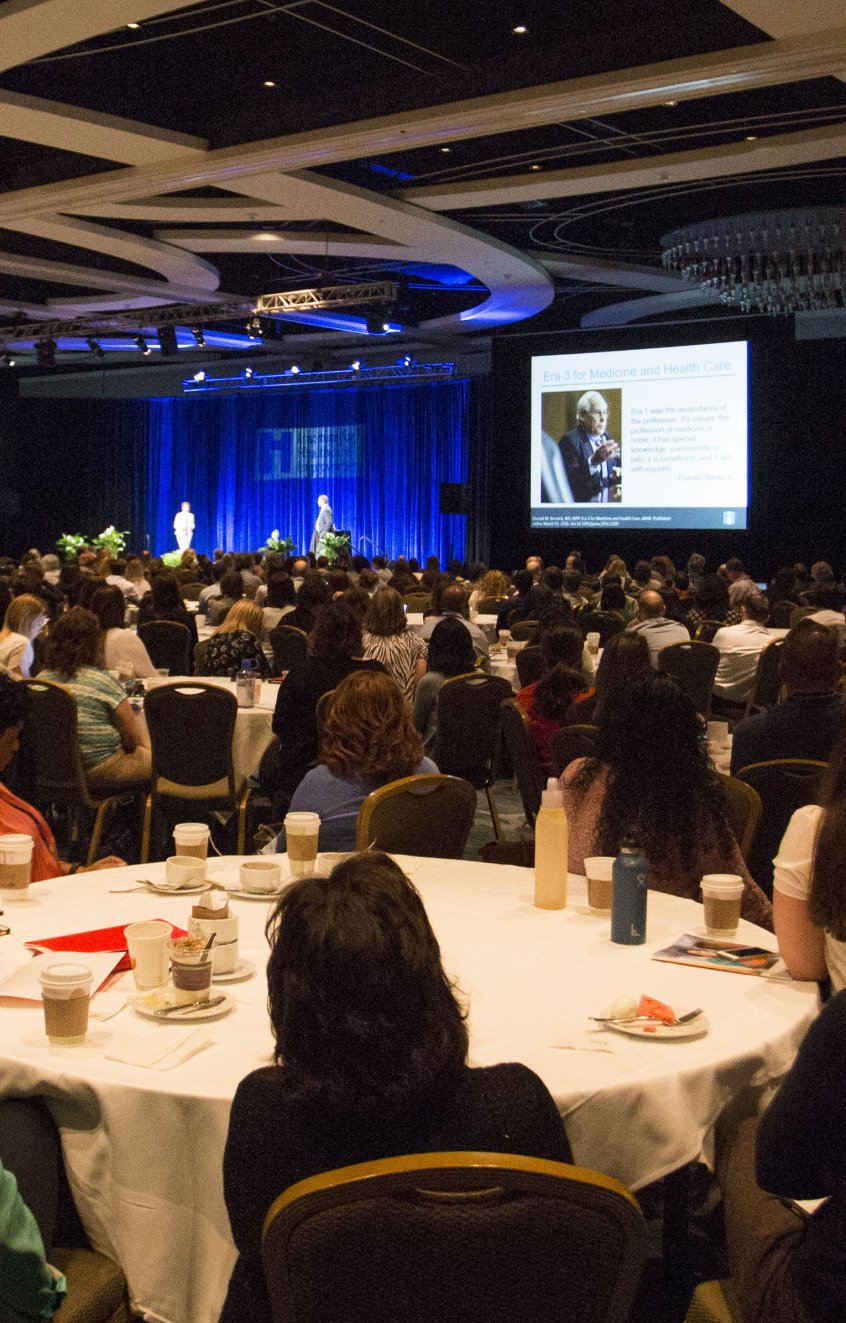
A Total Systems Approach to Safety
Safer Together: A National Action Plan to Advance Patient Safety
17 recommendations for making significant advances toward safer care and reduced harm across the continuum of care
Declaration to Advance Patient Safety
Calls for health care leaders to take collective and coordinated action using the National Action Plan
Self-Assessment Tool and User Guide
Assists leaders and organizations in identifying where to begin their patient and workforce safety improvement journey
Implementation Guide
Details tactics and supporting resources for implementing the National Action Plan recommendations
National Steering Committee Members
Resources
Safer Together: A National Action Plan to Advance Patient Safety
The National Action Plan and supplemental resources — Self-Assessment Tool, Self-Assessment Tool Resource Guide, and Implementation Resource Guide — help health care leaders, delivery organizations, and associations make significant advances toward safer care and reduced harm across the continuum of care.
Declaration to Advance Patient Safety
In May 2022, the NSC issued the Declaration to Advance Patient Safety to urge health care leaders across the care continuum to recommit to advancing patient and workforce safety with a total systems approach, as presented in the National Action Plan.
IHI Safer Together Recognition Program
Celebrate your organization's commitment to advancing quality and safety. The IHI Safer Together Recognition Program acknowledges the achievements of hospitals that have made significant strides to improve patient and workforce safety by implementing proactive changes in systems and processes.
Learn More
Patient Safety Awareness Week
Patient Safety Awareness Week
Patient Safety Awareness Week occurs annually in March.
Patient Safety Awareness Week, an annual recognition event that occurs in March, is intended to encourage everyone to learn more about health care safety.
During this week, IHI seeks to advance important discussions locally and globally, and inspire action to improve the safety of the health care system — for patients and the workforce.
Patient Safety Awareness Week serves as a dedicated time and platform for growing awareness about patient safety and recognizing the work already being done.
Why a Focus on Safety?
Although there has been real progress made in patient safety over the past two decades, current estimates cite medical harm as a leading cause of death worldwide.
The World Health Organization estimates that 134 million adverse events occur each year due to unsafe care in hospitals in low- and middle-income countries, resulting in some 2.6 million deaths. Additionally, some 40 percent of patients experience harm in ambulatory and primary care settings with an estimated 80 percent of these harms being preventable, according to WHO.
Some studies suggest that as many as 250,000 to 400,000 deaths occur in the United States each year as a result of errors or preventable harm. Not every case of harm results in death, yet they can cause long-term impact on the patient's physical health, emotional health, financial well-being, or family relationships.
Preventing harm in health care settings is a public health concern. Everyone interacts with the health care system at some point in life. And everyone has a role to play in advancing safe health care.
IHI works with partners around the world to improve the safety of health care for patients, caregivers, and the health care workforce.
Learn more about IHI's work to advance patient and workforce safety.
Ideas for Recognizing Patient Safety Awareness Week
Resources
IHI Lucian Leape Institute
IHI Lucian Leape Institute
Providing a Strategic Vision for Improving Patient Safety
The IHI Lucian Leape Institute (LLI) was formed in 2007 by the National Patient Safety Foundation (NPSF, which merged with IHI in 2017) to provide a strategic vision for improving patient safety. Composed of international thought leaders with a common interest in patient safety, the LLI functions as a think tank to identify new approaches to improving patient safety; call for the innovation necessary to expedite the work; create significant, sustainable improvements in culture, process, and outcomes; and encourage key stakeholders to assume significant roles in advancing patient safety.
The LLI is named for Lucian Leape, MD, who served as the founding chairman and remains an active member. Dr. Leape was a member of the Institute of Medicine’s Quality of Health Care in America Committee, which published the seminal works in the patient safety movement, To Err Is Human: Building a Safer Health System (2000) and Crossing the Quality Chasm (2001).
Our Work
The Lucian Leape Institute (LLI) strives for a world where patients and those who care for them are free from harm. The Lucian Leape Institute partners with key health care, non-health care, and community stakeholders to develop innovative ideas and bold recommendations for widespread improvement. The LLI's work is freely available and openly accessible to promote transparency, equity, and dynamic change.
As a think tank, the Lucian Leape Institute identifies new approaches to improving patient safety, calls for the innovation required to expedite the work, creates significant, sustainable improvements in culture, process, and outcomes, and encourages key stakeholders to assume roles in advancing patient safety.
Patient and workforce safety are at the core of IHI and the Lucian Leape Institute's efforts. The Lucian Leape Institute focuses on the following as fundamental aspects of this work:
- Collaboration and partnership with patients, families, health care colleagues, and experts in all industries.
- Innovative ideas and bold recommendations that push boundaries and inspire widespread improvement in the field of patient safety.
- Free and open access to all work and publications in an effort to promote transparency, equity, and dynamic change.
- Commitment of service to patients, families, and those who devote their lives to providing care.
- Proactive system thinking and continuous improvement to develop health care into a highly reliable industry.
- Leadership and organizational culture as key drivers of patient and workforce safety.
- Uniting expertise in safety, quality, and beyond to develop timely and sustainable solutions to patient and workforce safety obstacles.
- The importance of education of all stakeholders in safety science, culture, and leadership principles.
- Content and recommendations that can be used to create tactical and actionable next steps for health care organizations.
Reports and Related Publications
Members of the IHI Lucian Leape Institute
IHI Open School Frequently Asked Questions (FAQs)
IHI Open School FAQs
General FAQs
FAQs for Subscription Plans
Need Help or Have Questions?
If you need additional support, please contact us at OpenSchoolSubscribers@ihi.org.
EmailIHI Open School Continuing Education Credits
IHI Open School Continuing Education Credits
IHI Open School online courses offer more than 35 Continuing Education credits for nurses, physicians (AMA PRA Category 1 Credits™), and pharmacists; Maintenance of Certification (MOC) Part 2 for select medical specialty Boards; CPHQ CE credit from the National Association for Healthcare Quality (NAHQ); and Certified Professional in Patient Safety (CPPS) Recertification credits. Look for course-specific accreditation information within our curriculum overview.
To search courses by credit type, use the "Credit Type" filter when browsing courses in the IHI Education Platform.
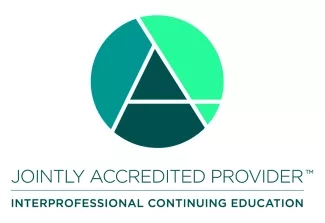
In support of improving patient care, the Institute for Healthcare Improvement is jointly accredited by the Accreditation Council for Continuing Medical Education (ACCME), the Accreditation Council for Pharmacy Education (ACPE), and the American Nurses Credentialing Center (ANCC), to provide continuing education for the healthcare team.
American Academy of Family Physicians
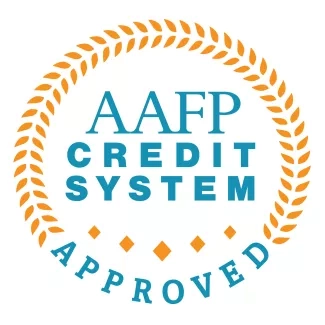
The 13 IHI Open School Basic Certificate in Quality and Safety courses offer American Academy of Family Physician (AAFP) continuing education courses for Physicians, Nurse Practitioners, and Physician Assistants who are looking for AAFP elective credit(s).
Canadian Family Physicians
Members of the College of Family Physicians of Canada are eligible to receive Mainpro+ Certified, Certified Assessment, or Non-Certified credits for participation select courses due to reciprocal agreement with the American Academy of Family Physicians.
Countries Accepting ACCME-Accredited CME
The Institute for Healthcare Improvement is jointly accredited by the Accreditation Council for Continuing Medical Education (ACCME), the Accreditation Council for Pharmacy Education (ACPE), and the American Nurses Credentialing Center (ANCC), to provide continuing education for the healthcare team. A growing list of countries accept ACCME-accredited education.
European Accreditation
The American Medical Association (AMA) has an agreement of mutual recognition of continuing medical education (CME) credit with the European Union of Medical Specialties (UEMS). Additional information regarding this agreement may be found here.
National Association for Healthcare Quality
Most IHI Open School courses are approved by NAHQ® for CPHQ CE credits. Please see the individual course topic pages for details.
Nurse Practitioners
For the purpose of recertification, the American Academy of Nurse Practitioners Certification Board accepts AMA PRA Category 1 Credit™ issued by organizations accredited by the ACCME (Accreditation Council for Continuing Medical Education). We would also suggest that learners check with their state licensing board to ensure they accept reciprocity with AMA PRA Category 1 Credit™ for re-licensure.
Physician Associates/Assistants
The National Commission on Certification of Physician Assistants (NCCPA) states that AMA PRA Category 1 Credits™ are acceptable for continuing medical education requirements for recertification. We would also suggest that learners check with their state licensing board to ensure they accept reciprocity with AMA PRA Category 1 Credit™ for re-licensure.
Royal College of Physicians and Surgeons of Canada
The Accreditation Council for Continuing Medical Education and the Royal College of Physicians and Surgeons of Canada have collaborated to enable Royal College Fellows to earn Section 3 credits by participating in accredited CME that counts for MOC. Royal College Fellows will be able to report participation in accredited CME activities that are available on or after November 1, 2019.
Social Workers
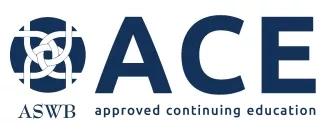
As a Jointly Accredited Organization, the Institute for Healthcare Improvement is approved to offer social work continuing education by the Association of Social Work Boards (ASWB) Approved Continuing Education (ACE) program. Organizations, not individual courses, are approved under this program. Regulatory boards are the final authority on courses accepted for continuing education credit.
ABIM CME + MOC
How to claim this credit type: Select "ABIM US Physician CME/MOC" when you claim your credits.
The ACCME and the American Board of Internal Medicine (ABIM) have collaborated to simplify the integration of MOC-accredited CME. Successful completion of the CME activity, which includes participation in the evaluation component, enables the participant to earn MOC points (and patient safety MOC credit) in the ABIM MOC program.
Participants will earn MOC points equivalent to the amount of CME credits claimed for the activity. It is the CME activity provider's responsibility to submit participant completion information to ACCME for the purpose of granting ABIM MOC credit.
ABMS Maintenance of Certification
How to claim this credit type: For individual courses, select "US Physician Internet Enduring Activity" when you claim your credits and submit the downloadable certificate to the Member Board. For a group of courses, select "MOC Part 2 CME" or "MOC Part 2 Self-Assessment" when you claim your credits and submit the downloadable certificate to the Member Board.
By completing select Open School courses (detailed by ABMS and below), diplomates of several American Board of Medical Specialties (ABMS) Member Boards may earn MOC activity points in the following categories: Lifelong Learning (MOC Part 2 CME), Self-Assessment (MOC Part 2 SA), and Patient Safety. Note that some Boards (ABPed and ABFM) require completion of the full "activity" — i.e., the grouping of six or seven courses listed below — while most Boards provide credit for individual courses.
For Boards not listed below, courses may count toward the ABMS general CME requirement. Please refer to your Member Board or the ABMS Continuing Certification Directory.
Need Help with Claiming CE Credits?
After you have completed your IHI Open School online courses, learn how to claim your continuing education (CE) credits and print a CE certificate. [Note: Credits are only available with a paid individual or group subscription.]
Learn MoreABMS Approved Activities
Through the American Board of Medical Specialties' ("ABMS") ongoing commitment to increase access to practice-relevant Maintenance of Certification ("MOC") Activities through the ABMS Continuing Certification Directory, these activities have met the requirements for a MOC Part II CME Activity (applying toward general CME requirement) and a MOC Part II Self-Assessment Activity as noted above for the ABMS Member Boards.

